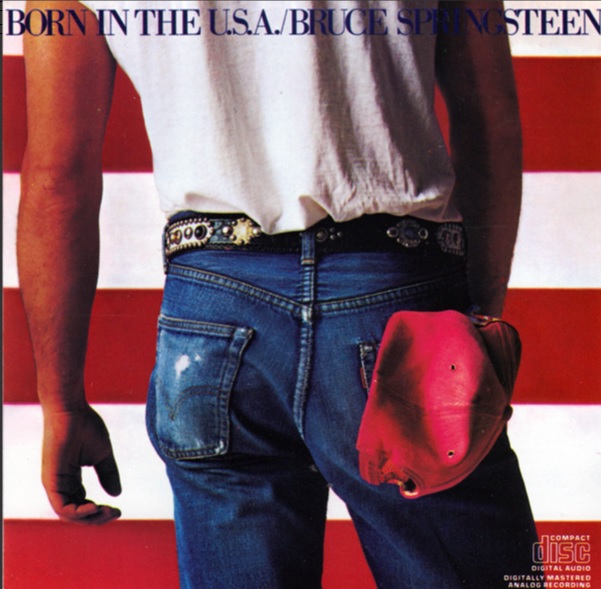I can see it.

More seriously, Naomi Gordon-Loebl in the Nation:
Which raises a difficult question: What exactly is so queer about Springsteen? Is it his extreme butchness, so practiced and so precise that he might as well have learned it from the oldest lesbian at a gay bar? Is it because his hard-earned, roughly hewn version of love is recognizable to those of us for whom desire has often meant sacrifice? Or is it something simpler? Do many queers love Springsteen because nearly every song he has produced in his 50-year career reflects a crushing, unabiding sense of alienation and longing—and what could be more queer than that?
The story of Bruce Springsteen is well known. Two albums that made him and the E-Street Band Jersey stars, a breakthrough album after the band got tweaked a bit with Born to Run, crowned the future of rock and roll, then fucked over by his first manager and forbidden from recording for a few years. The band spent the three years between Born to Run and Darkness on the Edge of Town touring, honing their craft. Once they re-emerged, older and more cynical, most of Bruce’s original optimism had disappeared.
It’s that backstory that makes his music so much more grounded than many of his rock contemporaries. His songs don’t offer fantasies, though they can offer hope. His most famous hit sounds so much like a patriotic anthem Ronald Reagan wanted it as a campaign song, but is actually a seering indictment of the realities of his “Morning in America”. Even at his most insufferable, on Human Touch/Lucky Town he still can’t quite forget his working class roots. He walks the walk too: doing fund raisers for the Democrats, tours for Amnesty International and the like. He has spoken out against police violence and for Black Lives Matter and of course wrote the above song about the murder of Amadou Diallo. He isn’t perfect, but his heart is in the right place.
I became a fan when I was ten, eleven. One of the first albums of his I owned, was the live boxset he brought out in 1985, a compilation of ten years of touring. That was at the height of his popularity, deep in the dark heart of Reagan America and what’s on it? Woody Guthrie’s “This Land is Your Land”, Edwin Starr’s “War”, a warning that “because in 1985, blind faith in your leaders, or in anyone can get you killed”. He’s deeply subversive on a level I didn’t understand then, but unconsciously seeped into me.
Naomi Gordon-Loebl argues that the pain he puts in his songs is what makes him resonate with queer people like her. Not being queer myself I can’t judge, but to me he is the lightning example of how to be butch, how to be masculine without being macho. It’s a masculinity that is available to anybody who feels attracted to it, not reserved just for cis men. It’s part of what keeps me coming back to Bruce Springsteen again and again too.
No Comments